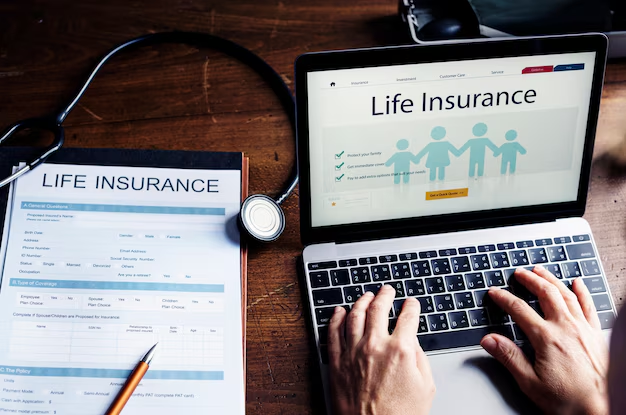Your Guide to Will Medicaid Pay For My Medicare Part b Premium
What You Get:
Free Guide
Free, helpful information about Medicare Insurance and related Will Medicaid Pay For My Medicare Part b Premium topics.
Helpful Information
Get clear and easy-to-understand details about Will Medicaid Pay For My Medicare Part b Premium topics and resources.
Personalized Offers
Answer a few optional questions to receive offers or information related to Medicare Insurance. The survey is optional and not required to access your free guide.
Can Medicaid Help Cover Your Medicare Part B Premium?
Navigating the complexities of health insurance can be daunting, especially when juggling an alphabet soup of programs like Medicare and Medicaid. So, can Medicaid pay for your Medicare Part B premium? The answer is yes, but it depends on your specific circumstances.
Medicaid, a government program designed to provide healthcare coverage for low-income individuals and families, offers assistance for Medicare recipients who struggle with the cost of premiums and out-of-pocket healthcare expenses. This aid, often referred to as the Medicare Savings Programs (MSPs), can be a lifeline for those who qualify.
Understanding Medicare Savings Programs
In simple terms, Medicare Savings Programs are Medicaid-administered initiatives that offer financial assistance to cover some of the costs associated with Medicare. There are four main types of MSPs, each designed for different income and resource levels:
Qualified Medicare Beneficiary (QMB) Program: Covers Medicare Part A and Part B premiums, deductibles, coinsurance, and copayments for eligible individuals.
Specified Low-Income Medicare Beneficiary (SLMB) Program: Helps pay for Medicare Part B premiums. This is ideal for those who do not qualify for QMB but still need assistance.
Qualifying Individual (QI) Program: Also assists with Medicare Part B premiums on a first-come, first-served basis, and applications must be renewed each year.
Qualified Disabled and Working Individuals (QDWI) Program: Aids in paying Medicare Part A premiums for certain disabled and working individuals.
The eligibility for these programs typically hinges on income and resource thresholds, which vary by state. Therefore, it’s essential to check the requirements specific to your state.
Determining Your Eligibility
To determine your eligibility for Medicaid's Medicare Savings Programs, you typically need to meet certain income and asset criteria. For example, as of 2023, the general income limits for an individual ranged from about $1,133 to $1,379 per month, depending on the program, with asset limits around $8,400 (excluding certain exceptions like your home). These thresholds are subject to change, so it's important to consult the most recent guidelines or speak directly with a Medicaid representative.
Application Process
Applying for MSPs usually involves contacting your local Medicaid office. You'll need to provide documentation proving your income and assets. The process can be time-consuming, but the potential savings make it worthwhile.
Broader Financial Assistance and Resources
Medicaid isn't the only vehicle for financial relief. Many Americans overlook a variety of government aid programs, financial assistance options, and educational grants, which can alleviate financial pressures beyond healthcare costs.
Government Aid Programs: Beyond Medicaid, there are other programs like SNAP for food assistance and LIHEAP for energy bills.
Financial Assistance: Community action agencies often offer programs to help with emergency expenses and financial counseling.
Educational Grants: Institutions like the Federal Student Aid program offer grants and loans for those seeking to return to education, potentially opening doors to better financial stability.
By expanding your understanding and exploration of these programs, you not only enhance your ability to cover healthcare costs but can also improve your overall financial well-being.
Financial Assistance Options to Explore
- 🤝 Qualified Medicare Beneficiary Program (QMB): Covers all Medicare cost-sharing.
- 🏦 Specified Low-Income Medicare Beneficiary Program (SLMB): Helps with Part B premiums.
- ✅ Qualifying Individual Program (QI): Also assists with Part B premiums, subject to availability.
- 🌟 Government Assistance Programs: Look into LIHEAP, SNAP, and more.
- 🎓 Education Grants & Loans: Explore FAFSA for educational opportunities and financial aid.
- 💡 Community Action Agencies: Provide local resources to assist with a wide array of financial needs.
What You Get:
Free Medicare Insurance Guide
Free, helpful information about Will Medicaid Pay For My Medicare Part b Premium and related resources.

Helpful Information
Get clear, easy-to-understand details about Will Medicaid Pay For My Medicare Part b Premium topics.

Optional Personalized Offers
Answer a few optional questions to see offers or information related to Medicare Insurance. Participation is not required to get your free guide.


Discover More
- Am I Elgible For Medicare
- Am I Enrolled In Medicare
- Am I Qualified For Medicare
- Are Adult Diapers Covered By Medicare
- Are Chemotherapy Drugs Covered By Medicare Part d
- Are Colonoscopies Covered By Medicare
- Are Covid Tests Covered By Medicare
- Are Cpap Machines Covered By Medicare
- Are Cpap Supplies Covered By Medicare
- Are Dental Implants Covered By Medicare
